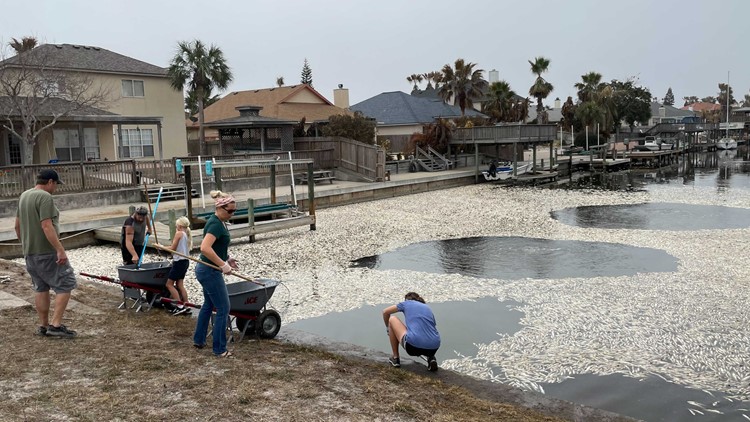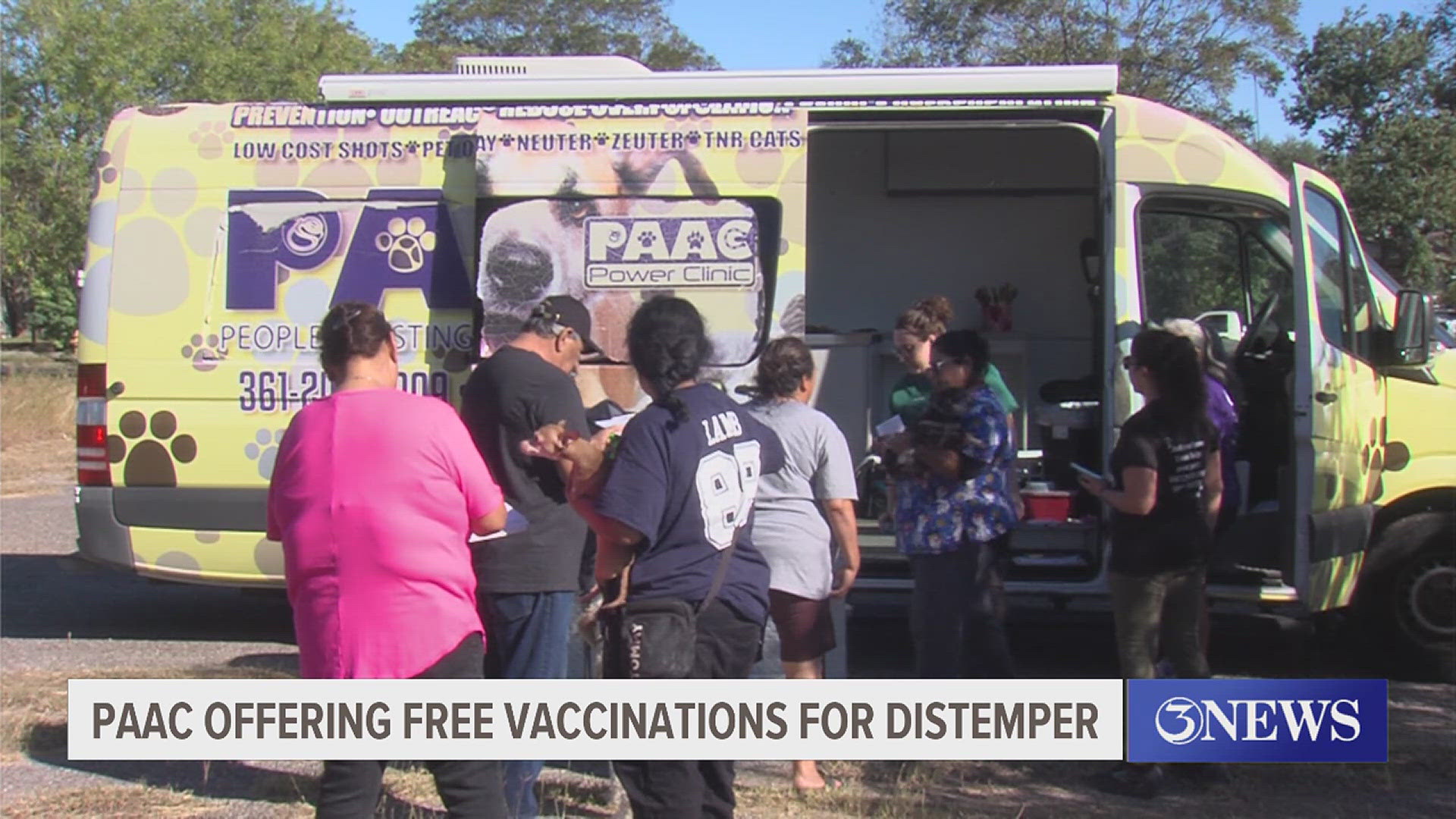CORPUS CHRISTI, Texas — An estimated minimum of 3.8 million fish were killed on the Texas coast during the Feb. 2021 freeze event, officials with Texas Parks and Wildlife said Wednesday.
The entire Texas coast experienced fish kill events, TWPD said.
If fish do not make it to deeper, more temperature stable water during cold weather, they could die when water temperatures reach a certain threshold.
After the first fish kill was reported in the Lower Laguna Madre, TPWD biologists began the process of assessing kills across multiple bay systems on the coast. Here is what they found.
Impacts to Fish from Feb. 2021 Event
An estimated minimum of 3.8 million fish were killed on the Texas coast during the Feb. 2021 freeze event. This fish kill consisted of at least 61 species. Non-recreational species contributed to 91% of the total mortality in numbers of fish. This includes species like Silver Perch, Hardhead Catfish, Pinfish, Bay Anchovy and Striped Mullet. While not sought after by most anglers, non-game fish are ecologically important, providing food for larger game fish as well as adding to the overall diversity of Texas Bays. Recreationally important game species accounted for the other 9% of the total. Of that 9%, the dominant species included Spotted Seatrout (48%), Black Drum (31%), Sheepshead (8%), Sand Seatrout (7%), Red Drum (3%), Gray Snapper (2%), and Red Snapper (<1%).
Both the Upper and Lower Laguna Madre bay systems were hit particularly hard by this event. The Lower Laguna Madre had the highest mortality of Spotted Seatrout with an estimated 104,000 fish killed. That comprised 65% of the total estimated Spotted Seatrout killed and when combined with the Upper Laguna Madre, it comprised 89% of the total estimated Spotted Seatrout mortality along the Texas coast. Similarly, the Upper Laguna Madre had experienced Black Drum mortality at an estimated 82,600 fish and comprised 78% of the coastwide Black Drum killed.
Historical Comparison
This is not the first freeze to occur in Texas coastal waters. Multiple freeze events during the 1980s killed almost 32 million fish, with the most severe impacts being on the lower coast. While the February 2021 event impacted a large area of the Texas coast, the overall number of fish killed in this event appears to be lower than any of the three freeze events in the 1980s.
“Using history as a guide, we believe our fishery has the potential to bounce back fairly quickly as it did after the 1980s freeze event. Based on our long-term monitoring, we saw the recovery in terms of numbers of Spotted Seatrout bounce back in approximately two to three years. This does not mean the fish size and age structure were the same as pre-freeze but the overall numbers did return in that timeframe.” said Robin Riechers, Coastal Fisheries Division Director.
However, the Spotted Seatrout mortality in the combined Upper and Lower Laguna Madres is comparable to the events from the 1980’s. Below is a breakdown of each event in the 1980s.
• December 1983: 14.4 million fishes killed with a geographic extent of the entire coast
• February 1989: 11.3 million fishes killed with a geographic extent of East Matagorda Bay south to the Lower Laguna Madre
• December 1989: 6.2 million fishes killed with a geographic extent of the entire coast
The Feb. 2021 freeze event appears to have been larger than any other fish kill event seen since the 1980s, including those in the 1990s and 2000’s. The 1997 freeze event saw 328,000 fishes killed but had a significantly higher percentage of game species killed (56%) than in 2021.
“While some areas of the coast and some species of fish were clearly impacted more than others, overall this is the worst freeze-related coastal fish kill we have experienced since the 1980s. There are some important lessons from those historical events that we need to draw upon as we work to accelerate the recovery of our fish stocks, particularly speckled trout along the mid and lower coast,” said Carter Smith, Executive Director of TPWD. “The most obvious, and immediate one for speckled trout is conservation, a practice where every Texas coastal angler can make a contribution right now. Practicing catch and release and/or keeping fewer fish to take home in areas like the Laguna Madre will only give us that many more fish to rebuild from as we augment populations through our hatchery efforts, and we carefully evaluate what regulation changes may be needed to foster a quicker recovery for our bays.”
For the latest updates on coronavirus in the Coastal Bend, click here.
More from 3News on KIIITV.com:



